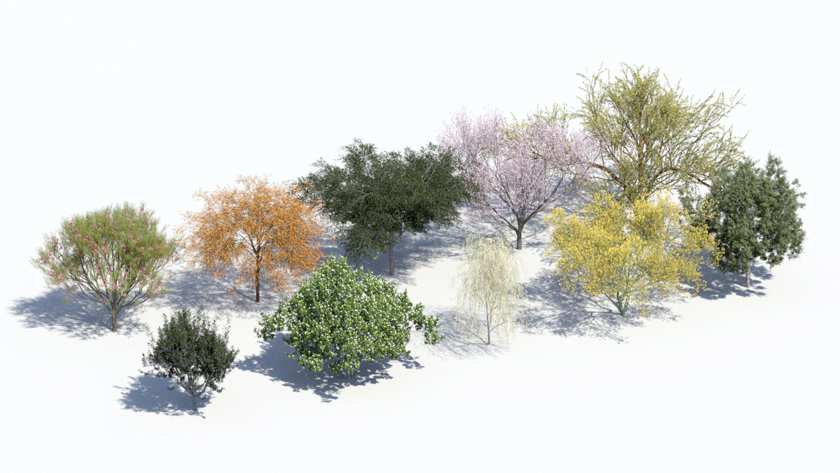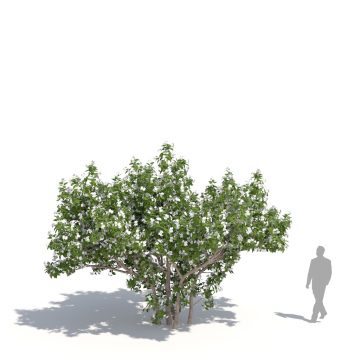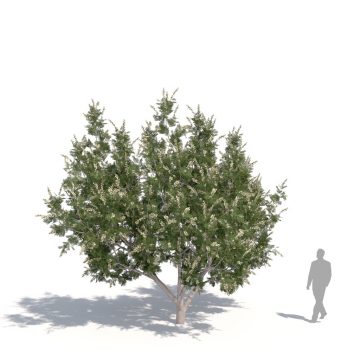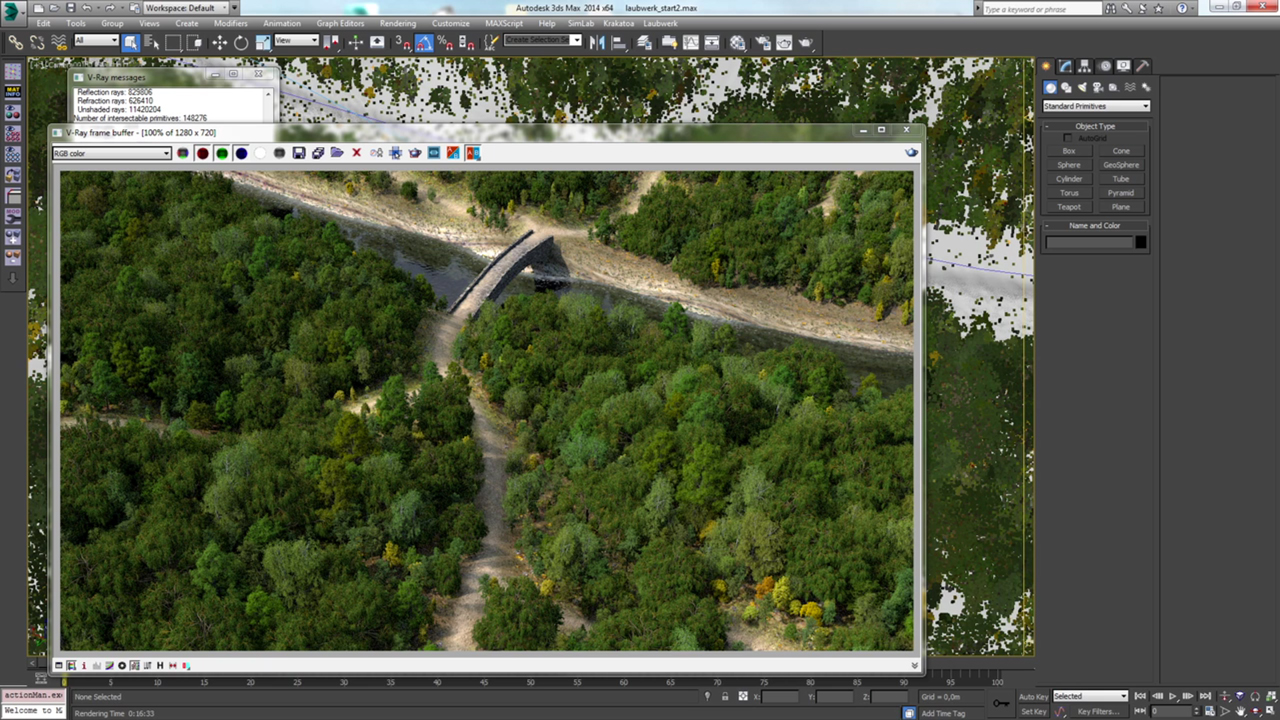v1.0.48 Laubwerk Plants Kit 14 – Subtropical Desert Trees
EDIT in Admin Edit in WP
Downloads
Download demos and trial versions, product documentation, free presets and more.
You may download a free Demo after logging in.

Subtropical Desert Trees
A selection of both attractive and common subtropical desert trees mainly from the deserts of Arizona, Texas, and Mexico planted in parks, gardens, or streets including showy specimen trees such as the Desert Museum palo verde, the Texas-mountain-laurel, and the graceful palo blanco tree.
10 tree species of Laubwerk Plants in 3 variants, 3 ages and 4 seasons each, for architects and CG artists working in 3ds Max, Maya, Cinema 4D, and SketchUp.
3D Plants for CG Artists
Laubwerk offers easy-to-use software extensions for architects and CG artists looking for authentic 3D plants, and plant scattering tools.
With drag-and-drop simplicity, and easy-to-use tools that modify the shape, age, season and level of detail for each of Laubwerk’s stunning 3D plants, users can seamlessly add 3D trees to any CG project. For Autodesk 3ds Max & Maya, MAXON Cinema 4D, Trimble SketchUp, and Python.
Includes 360 Models
All Laubwerk Plants in this Kit come in 36 variations per species, i.e. 3 variants, 3 ages and 4 seasons. Here are a few examples of the variety:

Spring: 10 out of 360 subtropical desert tree models of Laubwerk Plants Kit 14.

Winter: 10 out of 360 subtropical desert tree models of Laubwerk Plants Kit 14.

Detail of Burgundy desert willow (Chilopsis linearis ‘Burgundy’)

Arizona Desert Garden (artwork by Terry Pisel, Try Design, using SketchUp, V-Ray, Laubwerk Plants, including Kit 14).
Includes Free Laubwerk Player
The free Laubwerk Player plugin comes bundled with each of the Laubwerk Plants Kits.
Use the Laubwerk Player to easily load and control plant models inside Autodesk 3ds Max & Maya, MAXON Cinema 4D, and Trimble SketchUp. Just drag-and-drop your 3D tree, set the shape, age, and season and level of detail control. Watch the lightning fast rendering with inbuilt and 3rd parts renderer support.
Laubwerk Player Plugin
Inserting, controlling and rendering great-looking 3D tree models has never been easier with the Laubwerk Player plugin! The Laubwerk Player provides immediate visual access to your Laubwerk plant library. You get multiple drawing options in the viewport (like simple hull shape or skeleton) for quick feedback and low memory usage while editing your scene. And when you’re satisfied, watch the Laubwerk Player dynamically render fully-detailed plant models at amazing speeds, with automatic default materials and level of detail.
Plant Library Browser
The Plant Library Browser appears right in the 3ds Max, Maya, Cinema 4D or SketchUp main menu and provides direct access to the Laubwerk Plants installed on your computer. Drag-and-drop your 3D tree species into your scene or replace existing trees. Loading the plants through the Plant Library Browser directly creates materials with basic shading and textures preassigned, saving you time and memory while you work.
Plant Object
The Plant Object represents a Laubwerk plant model in your scene by using low-memory hull or skeleton mode for easy placement. It dynamically loads the model’s age and shape that you chose, creating a simple viewport approximation that allows you to apply model alterations and adjust level of detail settings. Laubwerk Plant Objects are fully scriptable using MaxScript.
V-Ray Support
Dedicated support of V-Ray saves you time and memory. Instead of manually converting Laubwerk Plant Objects into V-Ray proxies, the Plant Object detects when V-Ray is used for rendering and dynamically creates the model’s geometry during rendering. This is the exact same process V-Ray uses for V-Ray proxies, just automatically applied without any manual setup.
Renderer Support
Materials and textures are created on the fly – for the built-in renderer or third-party renderers.
- For 3ds Max, Maya, and Cinema 4D: mental ray, iray, Maxwell Render, Thea Render, Arnold, OctaneRender, Corona Renderer and Redshift.
- For SketchUp: V-Ray for SketchUp and Thea Render for SketchUp.
Laubwerk Advantage
- Plug and Play – One-click solution for architects and CG artists who need realistic 3D trees, immediately.
- Fast and Fluent – Render-ready 3D trees minimize the need for finetuning that can otherwise interrupt your workflow.
- Easy and Integrated – Drag-and-drop plants inside 3ds Max & Maya, and MAXON Cinema 4D, or Trimble SketchUp.
- Intuitive – Simple settings are a mouse click away.
- Smart Content – Go beyond static models! Choose the shape, age, season and detail of each tree.
- High Tech – Laubwerk technology minimizes the usual compromise between high-quality graphics and efficient memory usage.
Realistic 3D Tree Models
Laubwerk uses a hybrid of procedural modeling and hand-detailing by botanist and 3D artists to make the most realistic CG trees.
- Render-ready materials and textures are created on the fly – for the built-in renderer (3ds Max, Maya & Cinema 4D), or third-party renderers such as V-Ray, mental ray, iray, Maxwell Render, Thea Render, Arnold, OctaneRender, and Corona Renderer.
- Leaves consist of more than just a single polygon, so they bend and catch highlights.
- Textures are based on high quality photos from real trees.
- Models maintain shape and density, regardless of detail level.
Description
The following 10 tree species are included in the Plants Kit 14. Each species comes in 36 variations per species, i.e. 3 variants, 3 ages and 4 seasonal aspects, for a total of 360 models per Kit.
 Burgundy Desert Willow
Burgundy Desert Willow
Chilopsis linearis ‘Burgundy’
Deciduous shrub or small tree with an irregular, rounded or umbrella-shaped, spreading crown, and fairly loose, open branching. Smooth grey bark when young, developing rough fissures with age. Willow-like light-green leaves. Large, showy, trumpet-shaped, orchid-like, fragrant burgundy flowers. Blooms appear in terminal clusters from mid-spring through fall. Long bean-type seed pods that persist on branches during winter. The wild plant species is commonly seen in washes and along riverbanks. Cultivated for its large, showy flowers, graceful, airy structure, and tolerance of hot, dry climates. It attracts birds and butterflies and is also fire defensible.
 Texas Olive
Texas Olive
Cordia boissieri
Evergreen shrub or small tree with a symmetrical round crown. Typically multi-trunked, with attractive brown bark. Ovate, green-silver alternate leaves. Trumpet-shaped white flowers in terminal clusters appear year-round, if enough rainfall or irrigation is available. Otherwise, the showy blossoms with yellow throats appear from late spring to early summer. The olive-like fruits are ovoid fleshy drupes, first green, then ripening to a creamy white, relished by birds and other wildlife. Classy tree with very showy white flowers that attract butterflies and hummingbirds.
 Texas-mountain-laurel
Texas-mountain-laurel
Dermatophyllum secundiflorum
Evergreen shrub or small-to-medium-sized tree with a symmetrical, narrow upright or round crown. Usually multi-trunked, and rarely with a straight trunk, with fissured dark-grey to black bark. Dense glossy dark-green compound leaves, composed of leathery leaflets, rounded on the ends. Pendulous clusters of very fragrant violet-blue flowers in spring. Semi-woody pods with deep orange poisonous seeds. Popular ornamental plant due to its showy flowers and orange seeds.
 Texas Ebony
Texas Ebony
Ebenopsis ebano
Slow-growing, evergreen to semi-deciduous tree with a dense, spreading crown. Smooth grey bark when young, becoming rough and fissured with age. Young branches extend in a characteristic zig-zag pattern. Lush, dark-green foliage, pinnate compound alternate leaf. Small musty-fragranced creamy-yellow puff-ball flowers in late spring to summer. Large brown seedpods. Cultivated in xeriscaping for its dense foliage and fragrant flowers, which strongly attract bees.
 Tenaza ‘Sierra Sparkler’
Tenaza ‘Sierra Sparkler’
Havardia pallens ‘Sierra Sparkler’
Semi-deciduous, fast-growing tree with an upright form, and an almost columnar growth habit. Thin, grey to reddish bark, which breaks into small flakes. Small, light-green compound leaves. Mimosa-like fragrant fluffy cream blossoms after rains in late spring to summer, which attract bees. Reddish-brown seed pods. Leaves resemble those of Sweet Acacia, producing an open canopy and filtered shade. The cultivar was selected for more flowers and fewer seed pods.
 Desert Ironwood
Desert Ironwood
Olneya tesota
Evergreen to semi-evergreen, slow-growing, large shrub to single-to-multi-trunked tree, with a widely-spreading crown. Silvery-grey bark, which becomes rough with age. Bluish-green, pinnately compound leaves. Drops leaves before bloom and leafs out again during summer monsoons. Purple and pale-pink-to-white flowers, which bloom in late spring to early summer. Light-reddish-brown seedpods. Trees are a beautiful and distinctive light-purple color when in full bloom. The wood is hard like iron and very dense, making it unusually heavy.
 Palo Blanco Tree
Palo Blanco Tree
Mariosousa willardiana
Small-to-medium-sized slow-growing semi-evergreen tree with an airy graceful upright weeping habit and delicate open branching, slender when young but spreading elegantly with age. Distinctive smooth bark, white to reddish-yellow, peeling off and papery. May drop its grey-green leaves in a drought or cold spell. The lengthy needle-like leaf stalks remain prominently after the small leaflets drop, and hang gracefully from thin branches. Fragrant creamy-white flower spikes occur in late spring to summer, and occasionally throughout the year, followed by flattened seed pods. Wonderful visual accent tree with a picturesque silhouette, attractive bark, low maintenance requirements, and drought and heat resistance.
 Desert Museum Palo Verde
Desert Museum Palo Verde
Parkinsonia x ‘Desert Museum’
Rapidly growing, drought-deciduous large shrub or small tree with a sturdy, upright branching habit. Attractive smooth rich-green stems and branches. Small bright-gray-green foliage, leafing out after rainfall. Brilliant masses of pea-like yellow blossoms appear in the spring for a dramatic display, and again intermittently into the summer if given extra water. It offers an unusual green-blue silhouette in gardens, and delicately-patterned light shade over patios. The tree was hybridized at the Arizona Sonora Desert Museum in Tucson, and is a genetic cross between Parkinsonia microphylla, Parkinsonia florida, and Parkinsonia aculeata.
 Velvet Mesquite ‘AZT’
Velvet Mesquite ‘AZT’
Prosopis velutina ‘AZT’
Small-to-medium-sized deciduous tree with short, forking trunk and open, spreading crown of crooked branches. Smooth reddish-brown young bark, with rough dark-brown trunk and older branches, while the young green branches are photosynthetic. Soft feathery dark-to-dusky-green foliage, with paler undersides. Bipinnately compound alternate leaves, which fold closed at night. Drooping greenish-yellow catkins in late spring, and with summer rains. Long, straight or slightly curved, straw-colored seed pods. Remarkable, uniquely Sonoran desert tree. Bees produce a fragrant honey from mesquites.
 Sweet Acacia
Sweet Acacia
Vachellia farnesiana
Medium-sized, fast-growing deciduous tree with an irregular, half-open, oval-to-ovoid crown. Yellowish grey-brown bark, deeply fissured in older trees. Young twigs are yellowish-brown and very pliable. Long, narrow, pointed leaves, dull green above and blue-green underneath, with a silky texture that causes them to appear silvery-white at a distance. Fall color is usually a pale yellow, but sometimes appears as a more saturated yellow. Catkins appear with the leaves in spring.
System Requirements
Computer Hardware | A computer that is capable of running your version(s) of 3ds Max, Maya, Cinema 4D, SketchUp. |
|---|---|
Hard Disk Space | 10MB of hard disk space and additional space for the Laubwerk Plants models. |
Supported Hosts |
|
Installation Instructions | Our aim is to make the installation process as easy as possible for you. If you like to get more information, we have compiled these Laubwerk Plants Kits installation instructions, including advanced topics such as considerations when working in a network. |
Change Log
Update 1.0.49 (April 5, 2024)
Update 1.0.48 (December 22, 2023)
Update 1.0.47 (November 15, 2023)
Update 1.0.46 (July 17, 2023)
Update 1.0.45 (June 19, 2023)Maya
3ds Max
Cinema 4D
|
FAQs
Tutorials

Laubwerk Plants integration with iToo Forest Pack
Learn how to use Forest Pack to instantly create stunning CG forest scenes using Laubwerk's line of beautiful, render-ready 3D tree species, inside Autodesk 3ds Max.
More...



